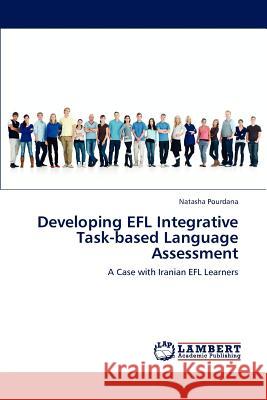Developing EFL Integrative Task-based Language Assessment » książka
Developing EFL Integrative Task-based Language Assessment
ISBN-13: 9783659223495 / Angielski / Miękka / 2012 / 228 str.
A prototype model of task-based language assessment, the Integrative Task (IT) Model, was developed as an attempt to solve the longstanding problem of generalizing the language learners' performances on particular language tasks to their future performances on the tasks at similar levels of difficulty. In the IT Model, two psychological doctrines contributed in developing the IT Model in order to be operationally defined as the two-factor constructs underlying Integrative tasks: First, the core operations identified in the eight categories of Multiple Intelligences Theory (Gardner, 1983; 1985) and the objective behaviors elaborated in the six hierarchical levels of Cognitive Domain in the Taxonomy of Educational Objectives (Bloom, 1965). The credibility, consistency, trustworthiness, and predictive adequacy of Integrative tasks were statistically examined based on the four original research questions. Ample quantitative as well as qualitative data supported the hypothetical assumptions made on the accountability of the IT Model as a newly-developed language assessment framework.
A prototype model of task-based language assessment, the Integrative Task (IT) Model, was developed as an attempt to solve the longstanding problem of generalizing the language learners performances on particular language tasks to their future performances on the tasks at similar levels of difficulty. In the IT Model, two psychological doctrines contributed in developing the IT Model in order to be operationally defined as the two-factor constructs underlying Integrative tasks: First, the core operations identified in the eight categories of Multiple Intelligences Theory (Gardner, 1983; 1985) and the objective behaviors elaborated in the six hierarchical levels of Cognitive Domain in the Taxonomy of Educational Objectives (Bloom, 1965). The credibility, consistency, trustworthiness, and predictive adequacy of Integrative tasks were statistically examined based on the four original research questions. Ample quantitative as well as qualitative data supported the hypothetical assumptions made on the accountability of the IT Model as a newly-developed language assessment framework.











